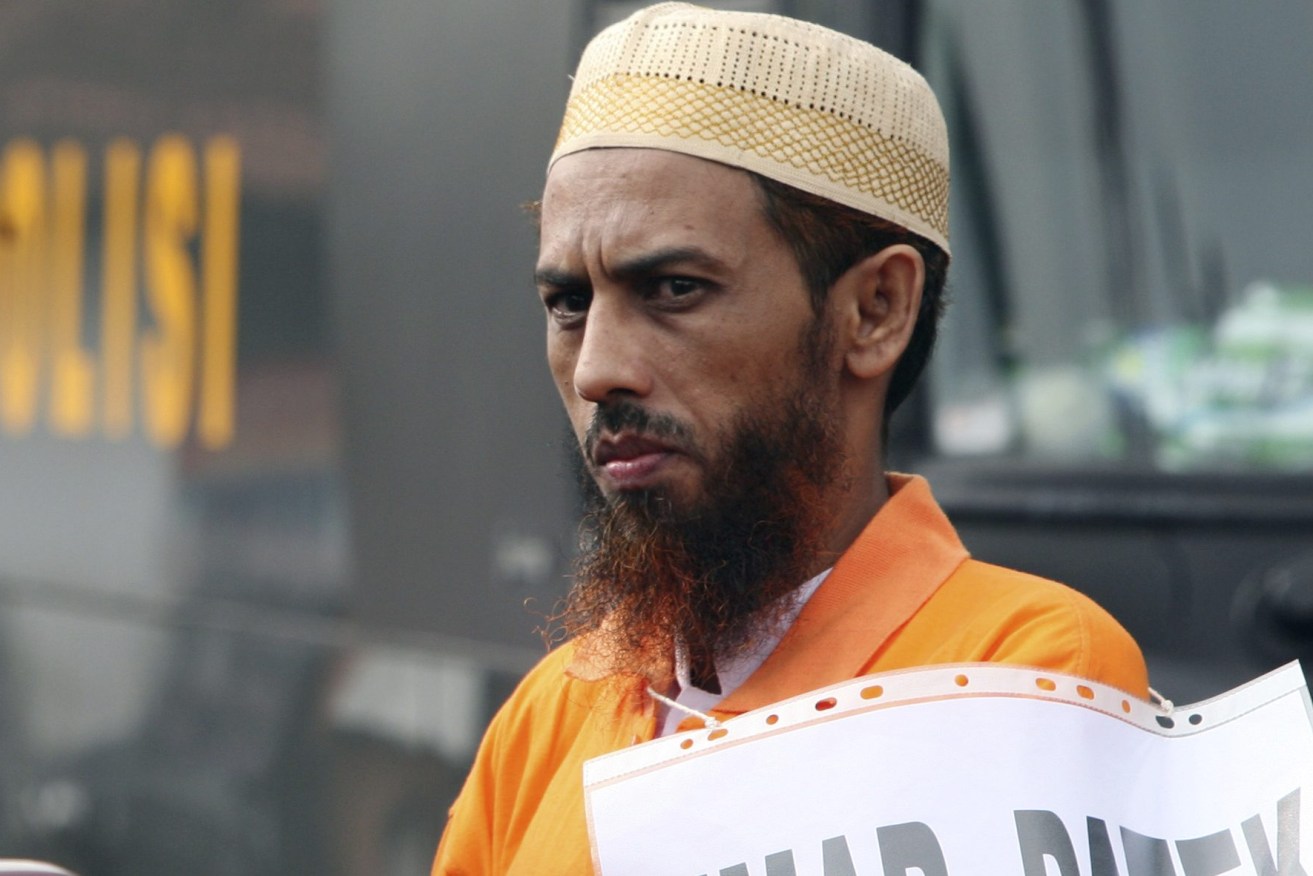Australia confronts “a difficult day” as Bali bomb mass murderer walks free

Convicted Muslim militant Umar Patek Umar Patek, a bomb maker in the 2002 Bali attack that killed 202 people has walked free from an Indonesian prison Wednesday. (AP Photo/Firdia Lisnawati, File)
Overnight, Indonesia released Bali attacks bomb maker Umar Patek from prison on parole after serving little more than half his sentence.
The attacks killed 202 people, including 88 Australians.
Deputy Prime Minister Richard Marles said the news would bring a “difficult day” for Australians and families who lost loved ones in the Bali bombings.
He told ABC radio the government had advocated against Patek’s early release and would urge the Indonesian government to ensure he had “constant surveillance” while on parole.
Energy Minister Chris Bowen said the development was concerning but the government respected Indonesia’s legal system.
He said it was important to keep dialogue open between the two nations.
“Indonesians and Australians were killed by these terrible murders, Indonesians and Australians went through this terrible ordeal together,” he told ABC News on Thursday.
Australian survivors of the attack on Thursday described the bomber’s release as appalling and “laughable” given the loss of life and pain he caused.
Hisyam bin Alizein, also known by his alias Umar Patek, was a leading member of Jemaah Islamiah, which was blamed for the blasts at two nightclubs in Kuta Beach.
Patek was found guilty by the West Jakarta District Court of helping build a car bomb that was detonated by another person outside the Sari Club in Kuta on the night of October 12, 2002.
Moments earlier, a smaller bomb in a backpack was detonated by a suicide bomber in the nearby Paddy’s Pub nightclub.
The attacks killed 202 people – mostly foreign tourists – including 88 Australians.
Indonesian authorities have said Patek was successfully reformed in prison and they will use him to influence other militants to turn away from terrorism.
Patek received a total of 33 months of sentence reductions, which are often given to prisoners on major holidays, said Rika Aprianti, spokeswoman for the Corrections Department at the Justice Ministry.
Most recently, he was granted a five-month reduction on August 17, Indonesia’s Independence Day.
Authorities will monitor Patek and he will have to participate in a mentoring program until his parole ends on April 29, 2030, Aprianti said.
Patek was escorted from Porong prison in East Java province by the National Police’s counterterrorism squad known as Densus 88 back to his family’s home in Surabaya, the provincial capital, she said.
“If he makes any violations during his parole period… then he will return to his cell,” she said.
News in August of his expected early release sparked outrage in Australia.
Australian Prime Minister Anthony Albanese described Patek as “abhorrent” and said his release would cause further distress to Australians who endured the trauma of the bombings.
Australia’s objection prompted President Joko Widodo’s administration to delay Patek’s release while Indonesia hosted the Group of 20 summit meeting last month.
Bombing survivor Peter Hughes from Perth, who gave evidence at Patek’s trial, said he and other survivors were sceptical the bomber was a changed man.
“There is a history of people like him, they won’t stop. For him to be let out is laughable,” Hughes told the ABC.
Fellow survivor Jan Laczynski said he was shocked and appalled at Patek’s release.
“I still can’t understand how this person that created so much loss of life and not just for 88 Australians – 202 people – could be walking free this morning,” he told Nine’s Today Show on Thursday.
Patek left Bali just before the attacks and spent nine years on the run.
He expressed remorse at his trial, saying he helped make the bombs but did not know how they would be used.
He has issued broad apologies, including to the victims’ families.
Patek said in August he was committed to helping the government with deradicalisation programs “so that they can fully understand the dangers of terrorism and the dangers of radicalism”.
Indonesia, the world’s most populous Muslim country and the third-biggest democracy, has imprisoned hundreds of Islamic militants since the Bali bombings.
-with AP












